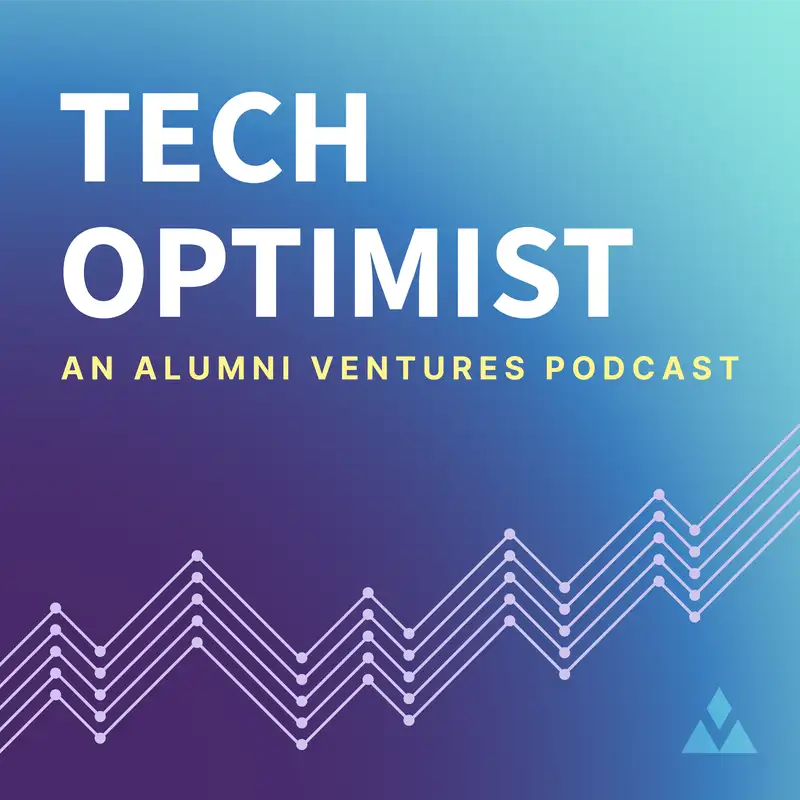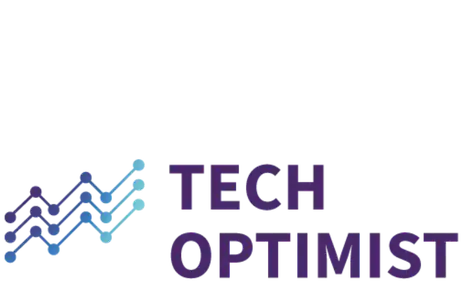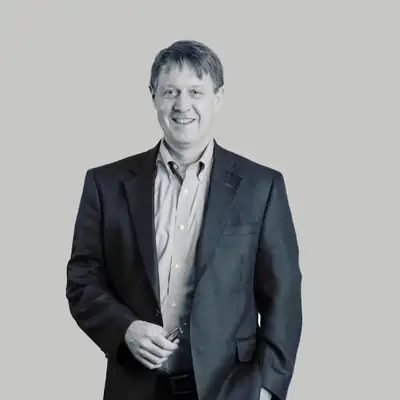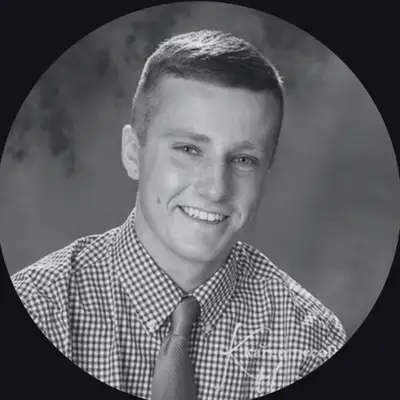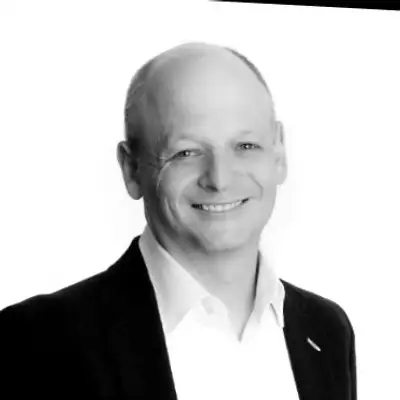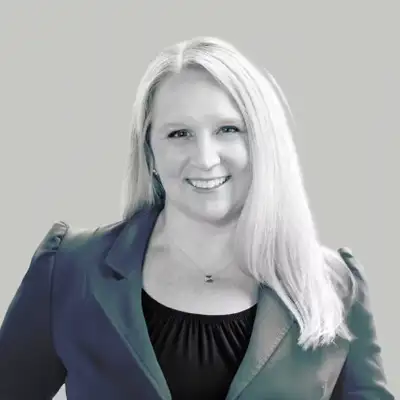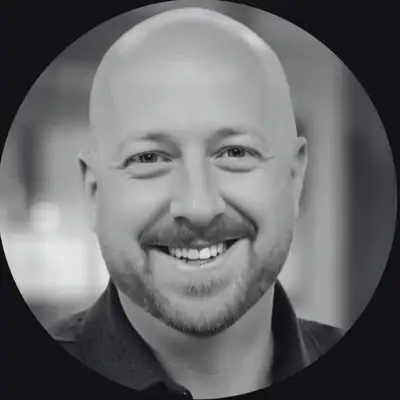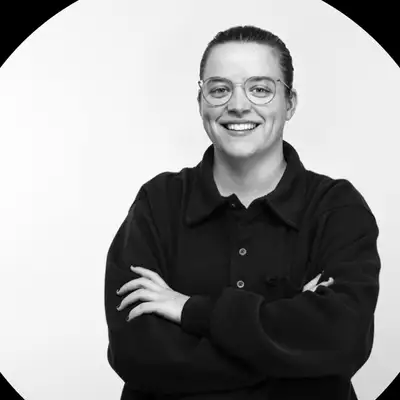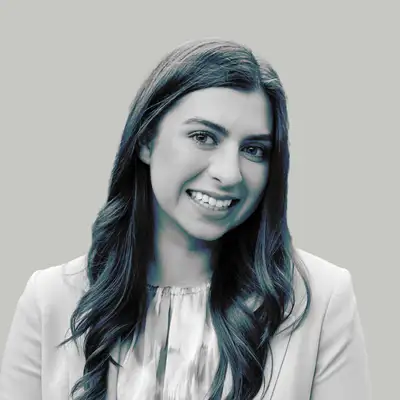#18 - My Dentist Is on TikTok
Sam:
Hey, I'm Sam, and I'll be your humble guide through today's episode, sprinkling some footnotes here and there. Today we ask, is your dentist on TikTok? This is the Tech Optimist.
Mike:
Yeah. It's not digitally native, that's for sure, right? I mean, yeah.
Gregg:
These three young dentists, great guys, got together and said, we think we can do this differently.
Sam:
In a world captivated by criticism, it's easy to overlook the groundbreaking technologies shaping our future. Let's shine a light on innovators who are propelling us forward. As the most active venture capital firm in the US, we have an exceptional view of tech's real world impact. Join us as we explore, celebrate, and contribute to the stories of those creating tomorrow. Welcome to the Tech Optimist. As a reminder, the Tech Optimist podcast is for the informational purposes only. It is not personalized advice and it's not an offer to buy or sell securities. For additional important details, please see the text description accompanying this episode.
Mike:
Yes, I'm here today with Gregg Kaplan. He's the CEO of Dentologie, and hopefully... Did I get that right, Gregg?
Gregg:
Yeah. No, you got it right, Dentologie, yep.
Mike:
Dentologie, and it's an AV portfolio company, and here to learn a little bit more about the company and kind of where they are in their journey. So Gregg, why don't you... First of all, give us your background. I mean, you're an HBS grad, you know, how'd end up where you're at?
Gregg:
Philosophy Major undergrad, somehow found my way into investment banking for a few years in New York. Went off to, as you pointed out, HBS, and graduated right when the .com world was starting to take off, and I got the entrepreneurial bug. Was part of two different startups, one in Boston, early employee at one in Boston, which went public, left there, went to shoot another one in Chicago, which also got public, not mine, other people had started them, but close enough to the early days to kind of see how things happened. And then decided I wanted to do it myself and found my way, and I'll do the summary version here, but found my way into a very little venture that had just gotten going, didn't have a name, and this was part of the McDonald's new business development group, and that ultimately became Redbox. I ended up jumping in the very early days, refocusing it, taking it over, giving it a name, Redbox, and then we ultimately spun it out of McDonald's. And over the next, what turned out to be for me about 11 years, going from really 0 revenue to when I left, it was about 2 billion in revenue, 45,000 locations.
Mike:
Yeah, no Redbox, tremendous story.
Gregg:
It was a lot of fun and really very lucky. We kind of hit a lot of different trends all at the right time and it took off, and a lot of fun.
Sam:
I want to provide a little bit more context about Redbox. So I think Gregg is being pretty humble here in this conversation with Mike, but during the time that Redbox was founded or this whole idea started to spring up in 2002, Gregg was a strategy and development executive at McDonald's, which also is a pretty gold job to have, I would think. And Redbox was part of the company's business expansion initiative called Project 361. And the main goal was to create a convenient way for consumers to rent new release movies at a low nightly price without having to subscribe to any monthly subscriptions like their competitor, Netflix or Blockbuster. After some testing within a few McDonald's locations, they found that DVD Rentals was the most appealing option. So in 2003, they shut down all the kiosks tests that they had put out, and then in 2004, pushed out their first fully automated kiosks in Denver, Colorado. So Redbox's goal was to make entertainment more accessible to everyone, and I think they've done just that. There are around 40,000 Redbox kiosks located in storefronts across the country. So you've definitely seen them. You definitely know what they are. You probably have used one. And let's keep going, take it away.
Gregg:
I took off, we sold the company to a business called Coinstar out of Seattle. I was there for a few years and then took a couple years off following some personal tragedy. My then wife of 18 years passed away and I became a stay at home dad for a few years, which was the right call. Got into private equity for six years in Chicago, operating partner, but decided I wanted to do the entrepreneurial thing again. One that-
Mike:
Yeah, once you try it, you can take a break, but it's hard not to.
Gregg:
Yeah, it pulls you back.
Mike:
It's hard not to go back at some point, I find.
Gregg:
Yeah. So my criteria was not dentistry, and we'll get to that in a moment, it was working in a really thoughtful, solid, innovative business with great people, which sounds like a very amorphous set of criteria, but when you've been through a lot of startups, you kind of know it when you see it. And I got a call from a venture capitalist in Chicago I've worked with for a long time, and I have a lot of respect for, and he said, I've got a really interesting business called Dentologie, and happy to... I'll stop there for the moment and then I can tell you a little bit more about the business.
Mike:
Yeah, no, I mean, what was it, when you're looking to scale something that everybody's familiar with, what are the criteria? What was your framework for thinking about, hey, I think this is an opportunity and there's a logical reason why this hasn't been done before? So that's always what jumps into your head when you hear about, hey, we want to create a national brand.
Gregg:
Yeah, great question. So maybe I'll give a little bit of background on Dentologie and then I'll get to my own process of nodding to I invested and then jumped in into CEO. And so Dentologie was started by three innovative young dentists who were all at different... They were friends from high school, were at different dentistry practices and being dentists, and a little disillusioned by the dentistry world and said, we think we can do this better. And their vision, which I ultimately totally bought into was, if you look at the way most people are very familiar with the dentistry experience, and when you compare it to what folks are familiar with today, young people in terms of the way that they run their life, whether it be Amazon, or Grubhub, or Uber, they're used to a different retail consumer experience. But when we go into the dentist, and a lot of healthcare for that matter, we kind of suspend judgment for some reason, which is the real estate itself tends to be kind of out of the way, not very convenient.
Literally the look and feel of the office feels very sterile, and it comes out of the seventies, very short hours. Why is it that every other store in America is open 18 hours a day or sometimes 24 hours a day, but the dentist's office is open weird hours that are not terribly convenient. And you still have this experience where you're filling out sometimes with a clipboard, like paper and pen, your insurance information, by the way, for the third time, and it feels very backwards. A lot of the dentist, it's kind of like an older kind of environment. It's not young and vibrant. The billing is kind of confusing. Nobody understands how it fits with insurance.
Mike:
It's not digitally native, that's for sure. I mean, yeah.
Gregg:
And by the way, there's no marketing, there's nothing about it. So these three young dentists, great guys, got together and said, we think we can do this differently.
Meera:
Hey, everyone, just taking a quick break so I can tell you about the seed fund from Alumni Ventures. AV is one of the only VC firms focused on making venture capital accessible to individual investors like you. In fact, AV is one of the most active and best performing VCs in the US, and we co-invest alongside renowned lead investors. With our seed fund, you'll have the opportunity to invest in a portfolio that aims to back some of the most innovative and scalable early stage tech ventures, all while focusing on the beginning of the venture funnel where valuations are typically most reasonable and the potential upside is greatest. To get started, visit us at av.bc/funds/seedfund.
Gregg:
And they opened up a location about 10 years ago in the South loop of Chicago, went really well, opened up a second location in Struderville. And right after they had opened up... Soon after their third location is when I got involved. And they had reached out to some venture capitalists, including one that was a good friend and colleague of mine, and said, we think we can scale this. And he reached out to me and he said, we love the concept, because it's taking something that is big and known that everybody is experienced with, but isn't done particularly well, and changing it, and we like that. We'd love to have somebody that scaled a business, a multi-unit kind of business. So when they called me, I said, let me spend about six months doing research and diligence, and this is coming back to your original question of, what's my criteria?
My first criteria was, having been a founder myself, I know that founders are quirky individuals, and I needed to know that I could work successfully with these three founder dentists, and we spent a bunch of time just getting to know each other. And I pinged them with tough questions partially to see what their reaction would be, and the reaction was great, which was, those are really good questions, we're still in learning mode, would love the ideas, and that's kind of what you want in partners. You want folks that are interested in learning and interested in hearing new ways of doing things. I then dug into the business fundamentals and turns out dentistry is $160 billion business in the US, massively fragmented. Most of the businesses, literally your mom and pop dentists that most of us are familiar with, it grows faster than GDP. It's always going to grow. It's a very solid, non-cyclical, non-seasonal business. But it suffers from, as we talked about at the outset, a lack of what I call general business sophistication, because most of the folks in it have been trained as dentists and they're great at that, but not as business people. And we said there's an opportunity to do it differently.
Sam:
So I want to capitalize a little bit on what Gregg said here, this massive fact that he just slid in there, that dentistry is a $160 billion business. The HBI and American Dental Association notes that dentists offices generate an annual economic impact of $478 billion, that is just alone insane. Another insane thing regarding this too though, is that dental offices support 2.5 million jobs in the US every year, and then on top of that, each one of those 2.5 million jobs in a dentist office then generates 1.4 additional jobs in other sectors of the economy. So seems like a pretty good investment.
Mike:
What's it now, if part of the challenge I would think is the dentists themselves, meaning that's one part of, you can get the software, you can get the location, you can get all those formulas figured out and get better over time. How do you think about the people side of the business? You have educated people. What's the incentive for a dentist to become part of this brand?
Gregg:
Yeah, it's a great question, and we've had a lot of success recruiting dentists in a world where it's challenging. And the reason why is, in addition to stuff that is very consumer facing, we're also trying to innovate around things that maybe consumers don't see as clearly, like recruiting and retaining dentists, hygienists, dental professionals, and I'm trying to use some of my old playbooks of building a great fast growth tech kind of culture that is progressive and young, and excited about building a business and a high growth business. So we spend a lot of time on employee engagement, employee culture, and if you're a young dentist and you've just graduated from dental school, typically you'll have a lot of loans in the [inaudible 00:14:11] Hanging up your own shingle is less of an option these days than it used to be. So your options tend to be going to a private equity backed dental business, which has gotten some tough reputation for being a little bit of sweatshop and a revolving door that's just focused on the bottom line, or going to maybe a one dentist practice in the suburbs somewhere. And we're trying to become the employer of choice, which is young, diverse, hip, fast-growing, lots of opportunity, lots of opportunities for advancement.
Mike:
Urban, probably, right? Yeah.
Gregg:
And so the end result of that is, we've hired a lot of dentists very successfully and created a buzz as the place to go. So that's worked out really well.
Mike:
I've noticed we have offices in Chicago and I've definitely, I've seen you guys there, so that's always a sign. Where are you in the journey as far as what's your next round of fundraising, what's the timing of that? Where are you in number of locations? What are your next KPIs or thresholds you want to hit, Gregg?
Gregg:
We've raised two rounds, series A, series B. Alumni has been part of both of them. It's 41 million we've raised in total so far of equity. We also have some venture debt. That's allowed us to now, and by the way, I should describe where the business is just in general today, but that's... We're at 10 locations, all in Chicago, doing really well. We will open 8 locations this year, 2024, the next one should be in a few weeks, and four of those will be additional locations in Chicago. Four will be in a new market, which is Seattle. And coming back to this original thesis around the business, what we've done is, you'll see we have highly branded locations on busy streets in urban, downtown Chicago neighborhoods, the kinds of places that you'd expect to see a Starbucks, or a Chipotle, or Warby Park. We're taking that kind of real estate, very inviting surroundings, young, diverse dentist population, kind of a fun feel, tech-enabled so that you can book your appointments, your treatment, your cleaning, your Invisalign, all of those things through both the web, through mobile, through an app. You can get all the results and your insurance information as well electronically.
So it's a great experience. And by the way, we measure Net Promoter Score pretty religiously, and we've been over 80 for the last seven or eight months.
Mike:
Oh, that's fantastic. Yeah.
Gregg:
So that's kind of where we are. Our current funding will last us well into 2025, which means we'll be fundraising again later on this year.
Sam:
Quick footnote here for those that don't know what a Net Promoter Score is, a Net Promoter Score is a market research metric that measures how likely customers are to recommend a company, product or service to others. So you know sometimes when you go to a grocery store or a website and you scroll down or you get a blast email that has a survey at the bottom where you can rate your experience using said product, website, company, etc, on a scale from 1 to 10, how likely are you to recommend this company, product, to a friend, colleague, family member, yada, yada, yada, yada. So what they do is that scale is usually 1 to 10, 0 being not at all likely and 10 being extremely likely. So when people put those scores in, all of those ratings are converted into a number between negative 100 and 100. Negative 100 obviously being at the lower scale and 100 being at the highest scale. So for context, that Dentologie has an 80 means it's a very well-liked business, and their customers are incredibly happy with our product and just our dental offices around the country. So good for you guys, good for Dentologie, that's great.
Speaker 5:
Ever wonder how the ultra wealthy invest their money? They often back startups before they go public through venture capital. Now, individual investors like you can too with Alumni Ventures. Visit av.vc to get started.
Mike:
Do you have an ask for our audience? How can our community support and help the business?
Gregg:
Yeah, absolutely. So I would say a couple of things is, if you're in Chicago or Seattle, come be a patient. Our patients are thrilled and happy, and come back often. If you're in the dental world and are looking to join a fast-growing, thriving culture, we'd love to have you at Dentologie. And then we also, and I didn't mention this at the outset, Mike, but one of our assets is one of the founders of the three dentist founders is very active on social media. We've now developed a following of over a million followers between TikTok and Instagram who tune into, his name is Sohail, Dr. M is what he goes by, his following for oral health tips kind of delivered in a fun musical kind of way. And it turns out that, again, a lot of other businesses are using social media, not in dentistry. So we've actually brought in a lot of patients and a lot of dental professionals, because they follow Dentologie and they follow Sohail, Dr. M.
Sam:
Dr. M on TikTok has 789,000 followers and 23.1 million likes on his page. Here are a few videos from his TikTok.
Dr. M:
I'm going to review my three favorite whitening products and tell you the cost and the pros and cons of all of them. Start with Crest white strips. Here are the positives. Number one, they're super easy to use and you can get them at basically any grocery store. Number two, they're really cost-effective at $2 per use, which makes them a great product if you're a beginner. Here are the cons. It is really confusing to know which one to buy. The one that you should be buying is the Crest White Strip Supreme, because it is 14% hydrogen peroxide. The second con is that the strips are really short, which could lead to your side of your teeth being more yellow than the front.
Let's talk about Opalescence Go. Here's the positive, it has the highest concentration of any over-the-counter product at 15% hydrogen peroxide. Second positive is they come in pre-filled retainers, which are single use and really easy to use. They're also wide enough to cover your whole smile. Here are the cons. Because the retainer is not custom-made to your smile, you can get leakage of the whitening gel onto your gums, which can cause irritation. The second con is that they're more expensive at about $8 per use.
Lastly, let's talk about custom whitening trays that are made by your dentist. The positives, they're custom-made to your teeth, which minimizes how much whitening gel can touch your tissues and cause irritation. Right from being unbelievably effective, I think they may be the most cost-effective solution in the long run. We charge $200 at my practice to make the trays, and it's $15 per syringe, which usually lasts five or six times. Here are the cons. You have to go to the dentist, which makes it less accessible than over-the-counter solution. Always, if you have any questions, drop me a comment. Hope I was helpful.
Mike:
Yeah, no, listen, marketing and advertising in 2024 is developing content and content has to educate or entertain, or both, and so very smart. And I think this is a great example of no matter what space you're in, if you're creative enough, there's a way to do interesting work there. So yeah, Gregg, it was real pleasure meeting you, introducing Dentologie to the company. It sounds like you're still at the beginning of this journey. Hopefully we'll look back in 5 or 10 years and it'll be a national brand, and it'll be another great feather in your cap, Gregg. So it was really nice meeting you.
Gregg:
Same here, Mike.
Mike:
Talk again soon. I appreciate it.
Gregg:
Appreciate it. Thank you so much.
Mike:
All right, have a good one.
Gregg:
Yeah, you too, Mike. Take care.
Sam:
Thanks again for tuning into the Tech Optimist. If you enjoyed this episode, we'd really appreciate it if you'd give us a rating on whichever podcast app you're using and remember to subscribe to keep up with each episode. The Tech Optimist welcomes any questions, comments, or segment suggestions. So please email us at info@techoptimist.vc with any of those and be sure to visit our website at av.vc. As always, keep building.
